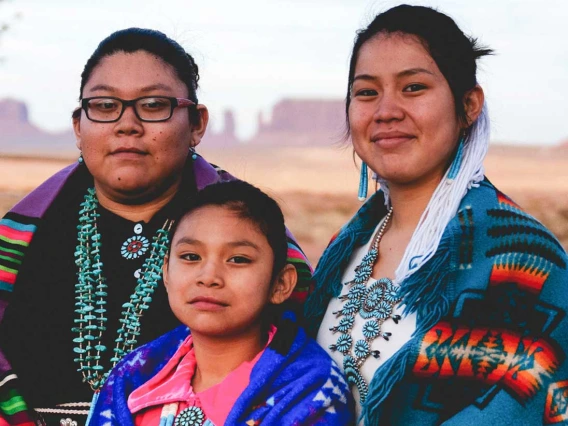Human Rights Practice
Graduate Certificate
Quick Facts
Top 1%
of all Higher-Ed
Institutions
- Center for World University Rankings, 2024
#1
In Best Value Among
Arizona's Public Universities
- Payscale, 2024
The online graduate certificate in Human Rights Practice is a professionally oriented program designed to provide the foundational knowledge, critical perspectives and practical skills to advance human rights around the globe. Students will help produce white papers, webinars, shadow reports and other forms of human rights work.
The curriculum is designed for individuals involved in human rights work across multiple disciplines, including activists and those working in non-governmental organizations. This certificate may also be appropriate for governmental officials and individuals working in some corporations.
Our curriculum features applied problem-solving and extensive interaction, including video guest lectures and modules taught by leading practitioners. Each student will have the opportunity to complete an applied project or take course electives tailored to their own interests and based on current trends in human rights. The flexible online program will especially appeal to students from around the globe who are unable to travel to the U.S.
Visit the Human Rights Practice website for more information about the University of Arizona's Human Rights programs.
The graduate certificate in Human Rights Practice requires 12 units to complete and can typically be completed in four to nine months. The program allows up to 3 transfer credits.
*Residents of some U.S. Territories may not be eligible. Please see our Eligibility & State Authorization page for more information.
The curriculum for this program includes:
Gain experience in setting missions, visions, purposes and goals; grant writing and program design; building logical frameworks; developing work plans, accountability and impacts tracking; stakeholder engagement; organizational, program, and project evaluation; communications and media relations; and other operations and outreach functions that assist an organization to enact its mission and vision. Adaptable planning tools and administrative/programmatic tracking templates will be shared.
This course introduces students to the critical role played by first-person testimonies, especially of marginalized populations, in human rights work. Students will consider how testimonies are used in a variety of media including official reports, documentaries, and published works.
This course is case-study focused and will explore advocacy and enforcement across the globe that has been successful or is underway, with a strong emphasis on the specific work of human rights practitioners in addressing impunity, pressing cases, and developing new legislation to protect human rights.
This course focuses on how to implement community-based action research projects relevant to protecting and advancing human rights in local communities. Community ownership and/or access to data as an empowerment tool will be examined. Students will learn how community members participate in developing research questions, choosing and implementing data collection methods, interpreting findings, and sharing/presenting of results.
You will interrogate concepts such as witness, testimony and evidence, historical memory, transmedia storytelling and convergence, strategic partnerships and impact campaigns, and emergent participatory frameworks, the course explores a variety of approaches to media production, exhibition, distribution and advocacy. Students will interact with filmmakers and/or media activists in the field through video conferencing; explore media products such as films, websites and online tutorials; and complete critical and practical readings. Students will develop individual projects in consultation with the instructor.
Explore visual arts, performance, theatre, puppetry, music, dance, poetry, ritual, and arts consortia/communities/venues as sites for human rights documentation, advocacy, appreciation, critical examination, and commentary. You will meet and talk online with guest artists and arts advocates who have crafted responses to human rights issues with cannot be "spoken of" fully or compellingly except through use of artistic non-verbal or performative actions/creations. Examine with guest artists the conceptualization, execution, and personal/social/ political/historical impacts of their projects. Key theoretical learnings will include use of play and as-if frames in addressing human rights, and how to explore arts' impacts. Students will acquire basic skills and create a human rights-focused art project during the class.
This course will overview use of emerging technologies and applications for human rights advocacy, such as using satellite imagery, analyzing big data, working with Geographic Information Systems (GIS), and/or using text messaging and participatory video to build grassroots support communities. Students will work in groups to complete a project which deploys technology in a creative and/or cutting edge application in human rights advocacy, research, or protection.
This course covers subjects such as police training and accountability in human rights protection – in various parts of the world. This course will emphasize review of case studies on the topic and will engage practitioners and researchers who worked on the cases under study.
These 1-3-credit courses may be taken up to three times (for a total of nine credits). These courses engage students in short, real-time examinations of a human rights emergency or crisis around the globe. You will learn from local activists and scholars what the issues are, how they emerged, and what activists are doing to try to incorporate human rights protections into crisis intervention and problem solving. It is recommended that students take at least two of these classes during their time in the program.
This is a theme-based course in which students “complete” 2 or 3 virtual field trips dedicated to a chosen human rights topic or issue as experienced/understood in different parts of the world. An activist or scholar in a relevant location will host the field trip (along with the UA instructor) and arrange for video or audio interviews with key stakeholders, guest lectures, and a video tour of the location. Assigned readings and course discussions will tie together the disparate experiences
Advance Human Rights Around the Globe
The MA in Human Rights Practice gives students the opportunity to gain core knowledge and make industry connections to support human rights around the globe. Online student Katarina Tatomirovic shares her experience with the program as a refugee and immigrant to the US.











